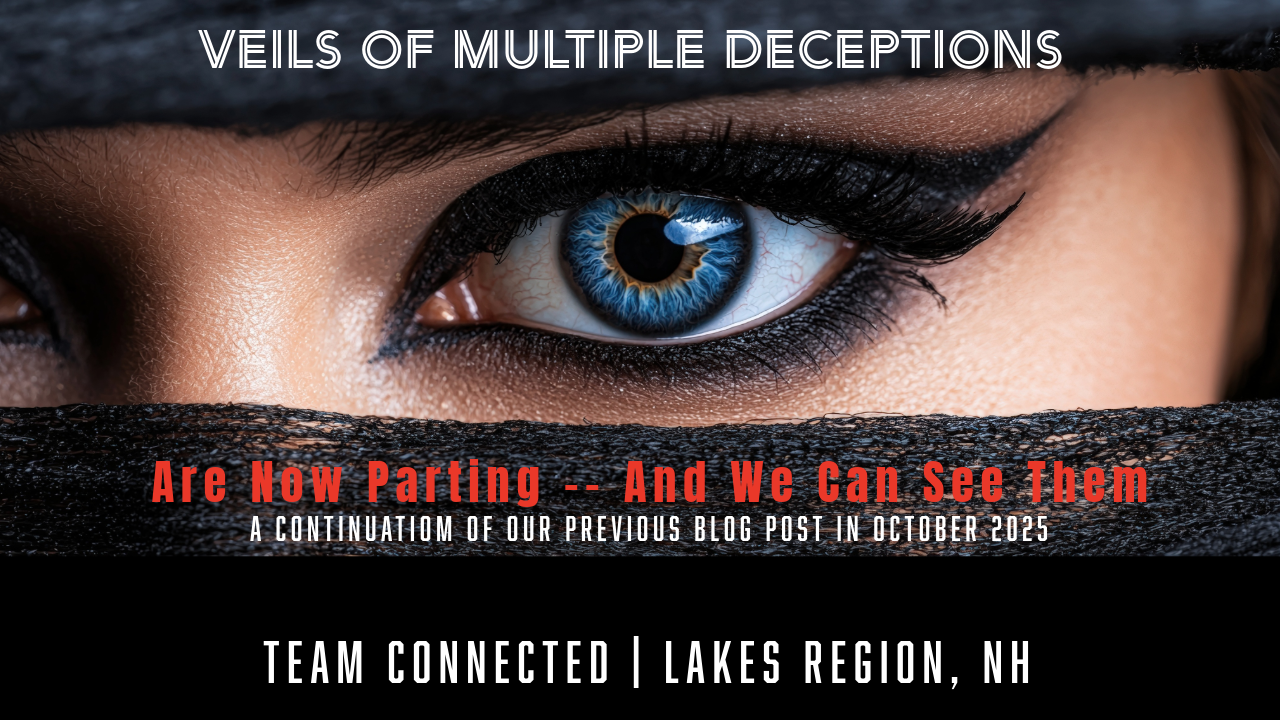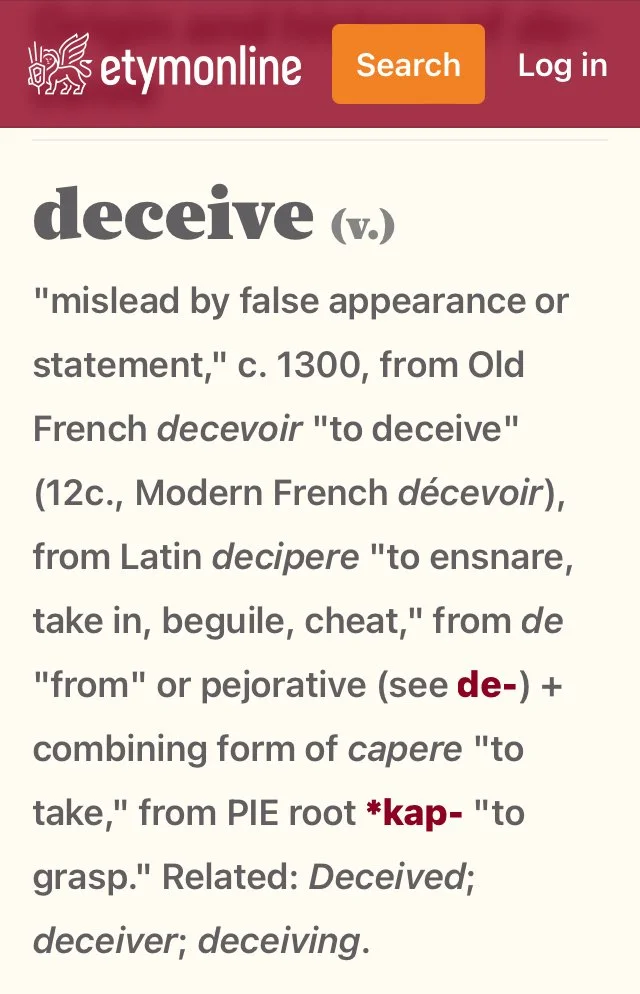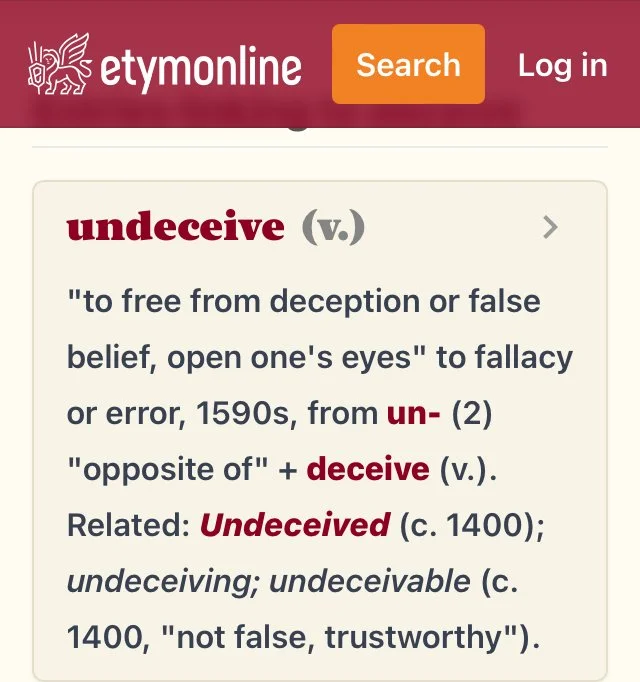Veils Parted of Multiple Deceptions - continued - Part One of Two Parts.
A Continuation of our previous blog post. Because the subject matter is lengthy, getting into the weeds of “DECEPTIONS” requires an a two part episodic map. So this Blog Post is broken down into two parts. This is Part One of two parts — and yes — it follows on our initial post in September 2025 entitled: “Parting the Veils of Deception - Local Influences on Information - and the Unseen Realm”.
Regarding multiple DECEPTIONS and SELF-DECEPTION, we begin with several simple questions
What exactly is deception?
How much of deception is self imposed? and
How much of deception is existent in our “CULT-URE” when we are born?
We begin with these simple questions to lay a foundation for much more which follows; and which may challenge readers in many ways. This blog post addresses those questions deeply across a variety of hard sciences including:
—synthetic biology SYNBIO,
— human augmentation (HACS)
—gene drive organisms (GDOs), humans artificial chromosomes (HACS),
—CRISPR CAS9 gene splicing, and
—the super soldiers platforms,
—geoengineering (weather modification,
all being currently PERCEIVED NEW TECHNOLOGIES which have ANCIENT origins now being revealed by hard archeological and genetic science … and much more…
There may only be a few people who read this blog post thoroughly — and watch the videos chosen to illustrate the multiple “CULT-URAL” Deceptions and Self-Deceptions — under which many of us “currently live”. Some readers may understandably ask: If this is true — WHY DIDN’T I KNOW THIS? There is no one answer which will adequately respond to this question with a one size fits all answer.
That observation is well understood as I write this. The mission of TEAM CONNECTED involves outreach into our local community addressing meaningful topics; some of which, may be challenging to most readers. This blog post is certainly one of them.
early 15c., decepcioun, "act of misleading, a lie, a falsehood," from Old French déception (13c., decepcion) or directly from Late Latin deceptionem (nominative deceptio) "a deceiving," noun of state or action from past-participle stem of Latin decipere"to ensnare, take in, beguile, cheat," from de "from" or pejorative (see de-) + capere "to take," from PIE root *kap- "to grasp."
From mid-15c. as "state of being deceived; error, mistake;" from 1794 as "artifice, cheat, that which deceives."
Deceptions fall into two primary categories:
A statement of material fact(s) about a subject where the facts are false; and/or
A failure to state material fact(s) (i.e., omissions) about a subject.
For the third graphic below as a video, please click this LINK TO THE SUBSTACK POST.
In a World of Multiple Deceptions — Words matter! One of them is “CULTURE” — and its cognate root “CULT”
The Deception of the “Dark Art” of Neology
Since most readers may be unfamiliar with the tersm “neology” and “neologisms” a bit of etymology and history will be helpful at the start. Beneath that discussion, we will turn our focus to very recent examples of “Neologies” with which readers ARE FAMILIAR.
"innovation in language," 1793, from French néologie, from neo-"new" (see neo-) + -logie (see -logy). Related: Neologist (1785); neologize. Neologian (1825) was used especially of "one who introduces needless innovations in language or thought," especially in theology.
1772 (in a translation from French), "practice of innovation in language, the use of new words or old words in new senses," from French néologisme (18c.), from neo- "new" (see neo-) + Greek logos "word" (see Logos) + -ism.
“SOURCE: … A neologism is a newly-created word used in expressions, in both writing and speaking. However, all neologisms are not entirely new. Some neologisms are built from new uses of old words, while others are combinations of old and new words. …”
Compounding: The Art of Combining Words
Compounding represents one of the most productive methods of creating new words in English. This process involves joining two or more existing words to create a new term with its own distinct meaning. These combinations often feel natural and intuitive, making them readily acceptable to speakers.
Affixation: Building Words Through Addition
Affixation represents a systematic approach to word creation, where prefixes and suffixes are added to existing words to modify their meaning. This process follows established patterns in the language, making the new words easily understandable to speakers.
The addition of the prefix 'un-' to create 'unhappy' demonstrates how affixation can systematically generate new words with predictable meanings. This process allows us to expand our vocabulary in logical, rule-based ways that speakers can readily understand and apply.
Adding the suffix '-ness' to form 'happiness' shows how affixation can transform words from one part of speech to another, in this case creating an abstract noun from an adjective. This systematic word formation process helps us express complex concepts and emotions.
Acronyms: Condensing Phrases Into Words
In our fast-paced modern world, acronyms have become an increasingly important method of word formation By taking the initial letters of longer phrases, we create concise new terms that can efficiently express complex concepts or organizations. …”
SEE ALSO: ORIGIN, NATURE, AND INFLUENCE OF NEOLOGY
A Few Current Examples of Neologies & Synthetic, Fabricated Words
“Synthetic facts and underlying reality matrices are being normalized”
The words listed below first appeared in packaged “news” reporting from 2020 to the present day. Why packaged? Most of mainstream “news” during that period used or editorialized opinions about certain thoughts, concepts, events, and speakers — and tirelessly repeated one OR MORE of the neologism words listed below. These words were attached no less often that “heretic” was deployed and attached to certain people and books during the Inquisition of the Middle Ages, or the Scarlet “A” was attached to certain people in colonial America. It’s an old stratagem tactic of coerced censorship of free thought and speech; the prevalence of which from our recorded history, we have learned very little … if anything.
In the so-called definitions of these neologisms of these wholly fabricated words, the word deemed is used as part of their usage signifying someone must first read some content or listen to some speaker and subjectively label and then normalize the application of one or more of these fabricated new words to what has been written or said. Repeated use of these neologisms is and remains the preferred stratagem deployed as a form of though and yes — mind control “of the masses” referred to beneath this list by author Noam Chomsky, author of numerous books dealing with the subject of “manufacturing consent”.
SOURCE: by Dr. Robert Malone
Definitions (because the meaning of words matter)
• Misinformation = information (deemed false at the time of distribution) that differs from the official State-approved narrative, but not intentionally deployed for political purposes.
• Disinformation = information (deemed false at the time of distribution) differing from the official State-approved narrative, distributed to advance a political agenda.
• Malinformation = information which may be true or false, but which causes those persons receiving the information to distrust the State.
• Synformation = Synthetic information and realities fabricated by creating false knowledge and associated synthetic “truth” matrices using large language model-based “artificial intelligence” computational tools.
• Epistemology = Epistemology is the philosophical study of knowledge, encompassing its nature, origin, and limits. It investigates what it means to know something, how knowledge is acquired through sources like perception, reason, memory, and testimony, and what distinguishes justified belief from mere opinion. Central concepts in epistemology include belief, truth, justification, and evidence, with the traditional definition of knowledge often being understood as justified true belief.
• Epistemic Capture = As articulated by Dr. Toby Rogers in his Senate testimony and writings: “In the social sciences, there’s this term called epistemic capture, which is when the entire knowledge production process becomes captured by one industry (Big Pharma). And that’s what’s happened with science and medicine.” He elaborated that this capture means “the pharmaceutical industry has captured every step in the knowledge production process in science and medicine. Big Pharma controls what is studied, how it is researched, and what qualifies as evidence.”
• Truthiness = Something has truthiness when it feels true, sounds true, or ought to be true based on emotion, intuition, belief, or ideological preference — regardless of evidence, logic, o
r objective verification. It prioritizes subjective conviction (“I feel it in my gut”) over empirical reality (“the evidence shows…”).
Noam Chomsky - An Historical Stratagem for Manufacturing Consent
“… [T]he Encyclopedia of Social Sciences in 1933 contained an article on “propaganda” written by Howard Lasswell, one of the founders of modern political science. He warned that the intelligent minority must recognize the “ignorance and stupidity of the masses” and not succumb to “democratic dogmatisms about men being the best judges of their own interests.” They are not; we “responsible men” are the best judges. For their own benefit, the “stupid and ignorant masses” must be controlled. In more democratic societies, where force is unavailable, social managers, must therefore turn to ”a whole new technique of control, largely through propaganda.” Edwin Bernays explained in his 1923 “Propaganda” publication that the intelligent minorities must “regiment the public mind every bit as much as an army regiments the bodies of its soldiers.” The task of the “intelligent minorities, primarily business leaders”, is the “conscious intelligent manipulation of the organized habits and opinions of the masses.” It becomes a major industry in the 1970’s, and has reached new heights of sophistication in recent years. Manuals explain that the industry should seek to impose a “philosophy of futility” and “lack of purpose in life.” It should find ways to “concentrate human attention on the more superficial things that comprise much of fashionable consumption.” People may then accept and even welcome their meaningless and subordinate lives, and forget ridiculous ideas about managing their own affairs. They will abandon their fate to the “responsible men,” the “intelligent minorities,” a “secular priesthood”, who serve and administer power, which of course lies elsewhere, a hidden but crucial premise.” (Noam Chomsky, On Nature and Language (2001 ).
CRITICAL THINKING IS REQUIRED BY READERS HERE:
See also: “Silent Weapons for Quiet Wars” SOURCE PDF (1954, 1979) Technical Manual No. SW S7905.1 (1954, 1979) This is the top secret manual said to be found by accident in 1986 by an employee of Boeing Aircraft. He bought a surplus IBM copier for scrap parts at a government sale and found the manual inside. The manual outlines a plan to control the masses through manipulation of industry, education and politics, and to divert the public’s attention from what is really going on. Surprisin gly, it is claimed that much of what is outlined has come to pass, and makes interesting reading for those exploring the deeper levels of our social structure and how it may be controlled or influenced. The Book Tree edition includes all of the important charts and diagrams not seen in other versions. It is an exact replica of the original, aside from some minor alterations to correct print quality. Found in this edition only is a new, four-page Introduction. It explains why we may never be certain of the true origin of this document, despite the fact that someone has stepped forward and claimed that they assembled it from multiple sources.
DECEPTIONS Always Require a “Host” Audiences’ Mind — and a “Cult-ure” in which to be DECEIVED
Few would dispute that human beings would disagree each of us is born into a “culture” of one type or another. From an earth bound perspective few MAY also disagree that a new infant actually chose or gave any informed consent to being born and brought up in that “cult-ure”. Simply stated: we were born into it — and some may go so far as to say “Get over it”. Maybe those with that belief may change a bit by understanding the Etymology of the word “culture” and its cognate root “cult”; both addressed below — and in the video which follows.
mid-15c., "the tilling of land, act of preparing the earth for crops," from Latin cultura "a cultivating, agriculture," figuratively "care, culture, an honoring," from past-participle stem of colere "to tend, guard; to till, cultivate" (see colony). …
The figurative sense of "cultivation through education, systematic improvement and refinement of the mind" is attested by c. 1500; Century Dictionary writes that it was, "Not common before the nineteenth century, except with strong consciousness of the metaphor involved, though used in Latin by Cicero." The meaning "learning and taste, the intellectual side of civilization" is by 1805; the closely related sense of "collective customs and achievements of a people, a particular form of collective intellectual development" is by 1867.
The word was rare after 17c., but it was revived mid-19c. (sometimes in French form culte) with reference to ancient or primitive systems of religious belief and worship, especially the rites and ceremonies employed in such worship. Extended meaning "devoted attention to a particular person or thing" is from 1829. Cult is a term which, as we value exactness, we can ill do without, seeing how completely religion has lost its original signification. [Fitzedward Hall, "Modern English," 1873] Cult. An organized group of people, religious or not, with whom you disagree. [Hugh Rawson, "Wicked Words," 1993]
A Foundational “First Principle” — “Words Matter” — And the Fabrication of New Words by Neology is Simply a DECEPTION!
The following video is about an hour long; yet it is foundational for much of the balance of this blog post. That is particularly true for readers who may ask the question: “WHY didn’t I know this?” Please AGAIN remember Critical Thinking is strongly encouraged.

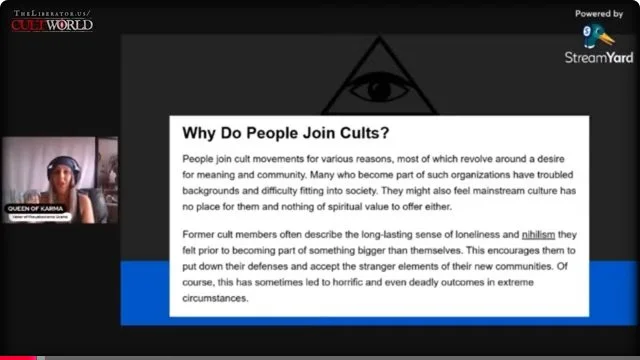
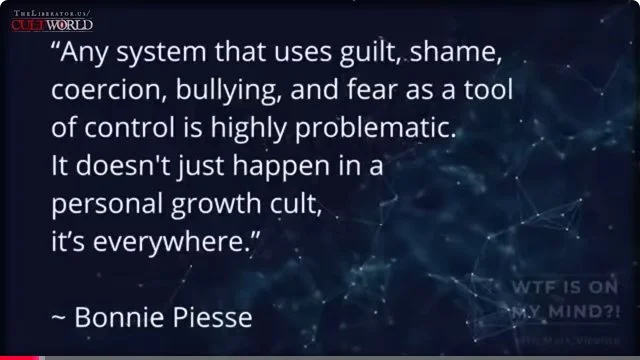
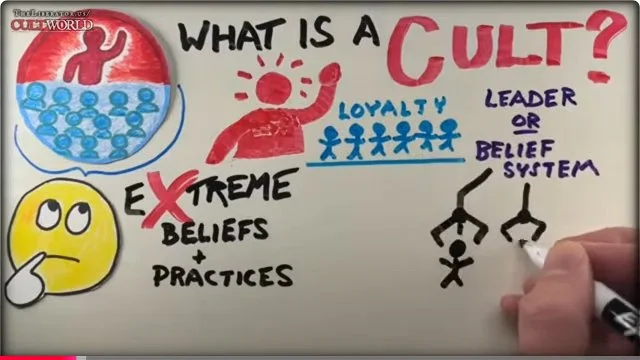
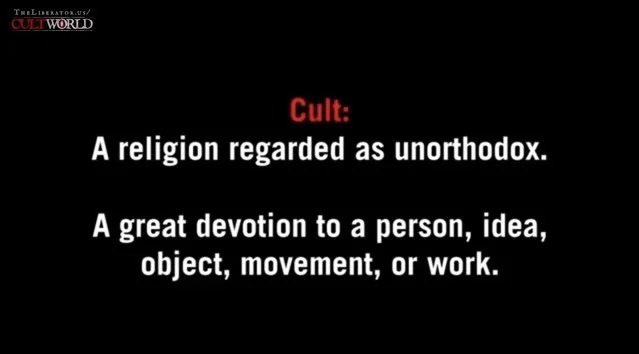
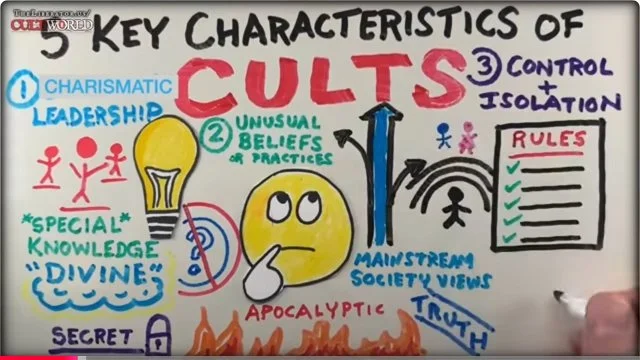
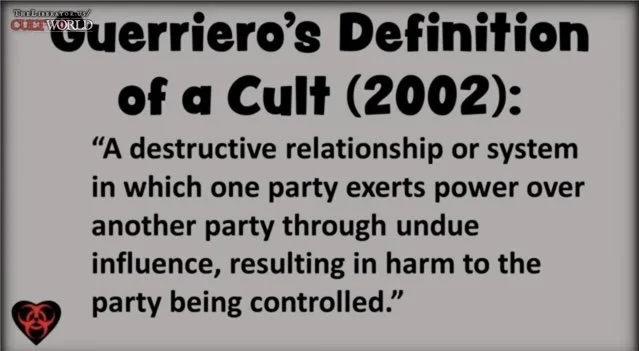
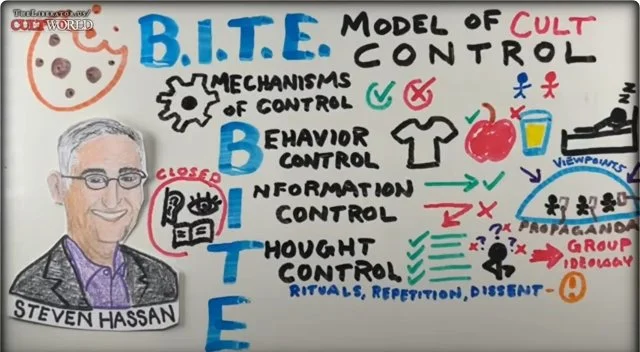
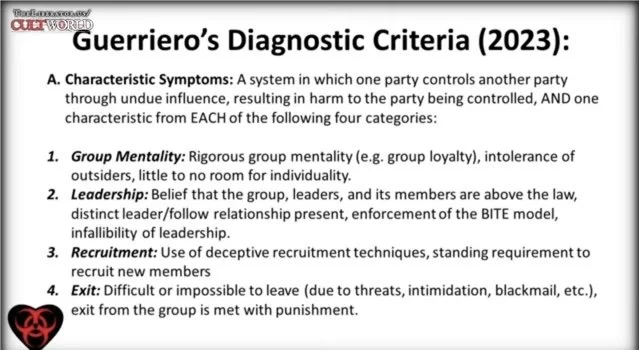
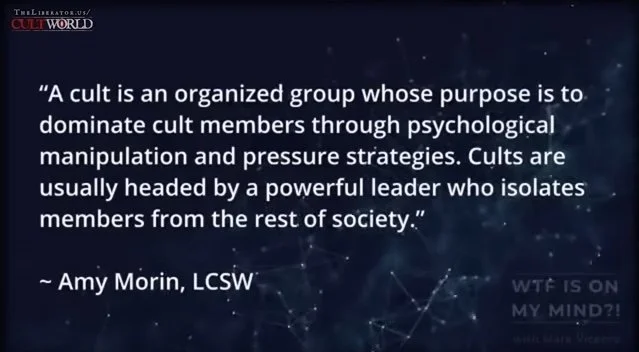

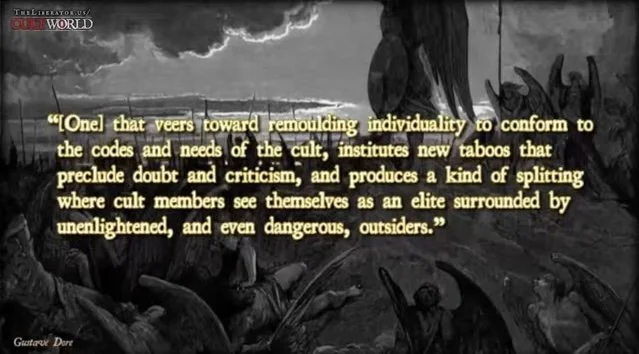
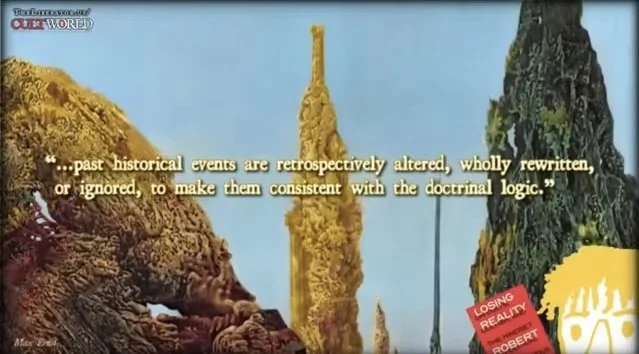
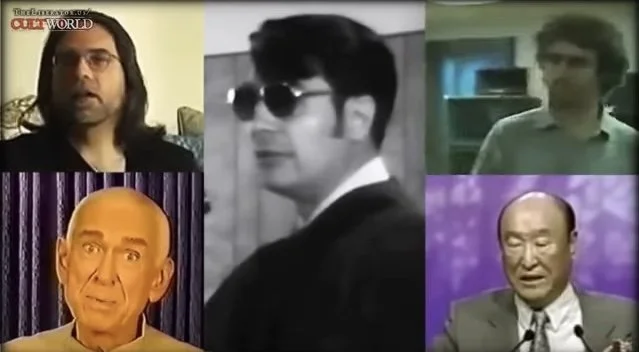



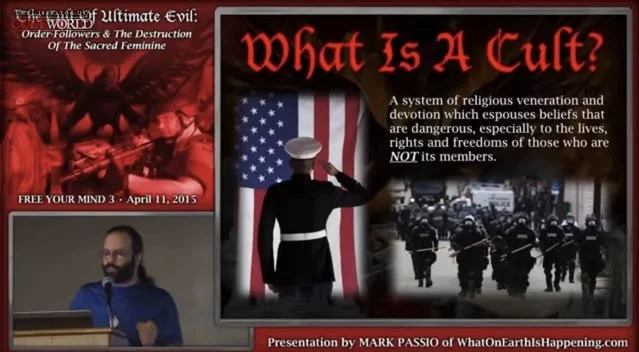
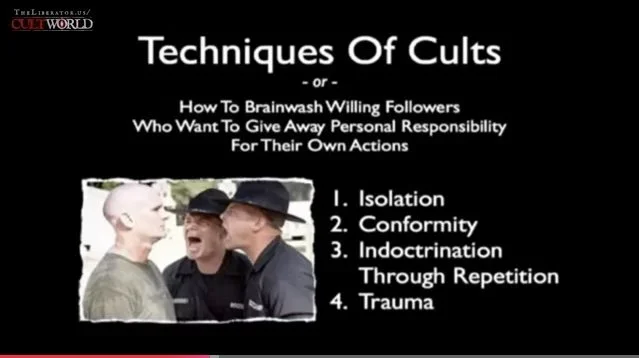
What our Culture or Cults Taught — and Still Teach About our Origins — Critical Thinking Required
If readers are still with us, you are to be congratulated. The following videos are not mainstream but are being heavily distributed across YouTube. There is however documented evidence in newspapers for the first video which lays a foundation requiring both healthy skepticism and Critical Thinking. Years back, when I first became aware of this content, I reacted “Surely not!”
So … yes I bought some of the books of Timothy Alberino “Birthright”, Gary Wayne “The Genesis 6 Conspiracy”, David Flynn “Cydonia”, and Tom Horn … to name a few of many more. An yes, I read them and examined closely all primary ancient texts referred to in them.
This first video provides graphics of newspaper clippings in the period of the 1900-1950 time frame. As a history and environmental sciences major, was I provided an inkling of the existence of what appears in the following video? No! I was not. The obvious question remains WHY?


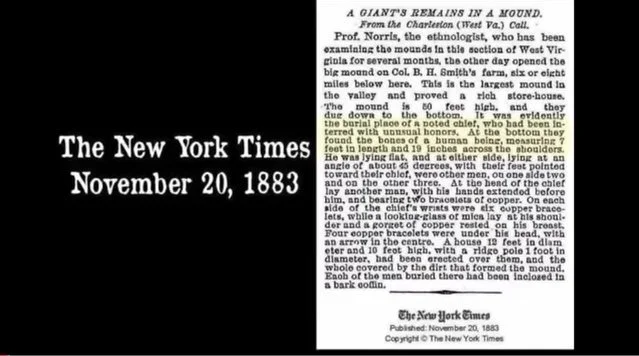

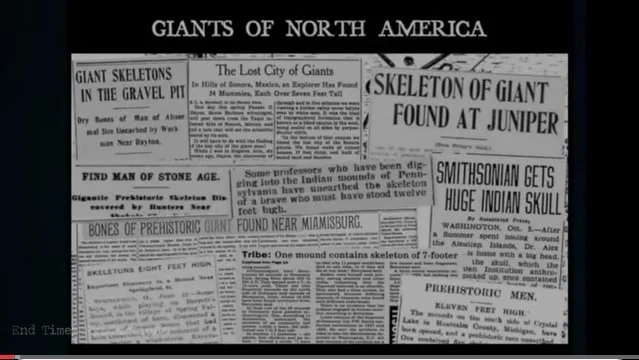
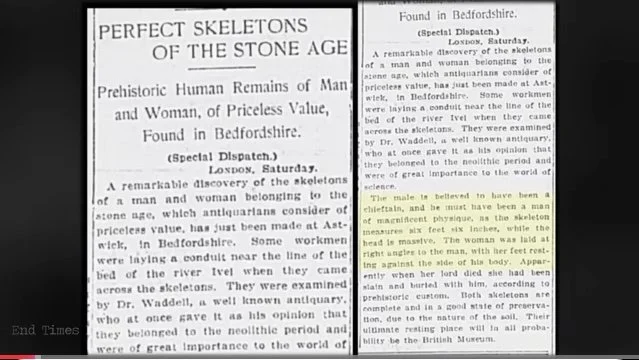
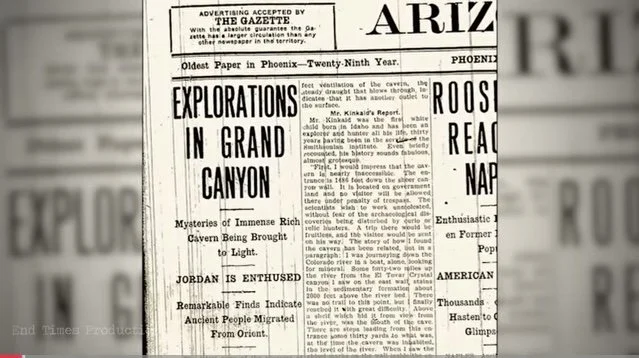
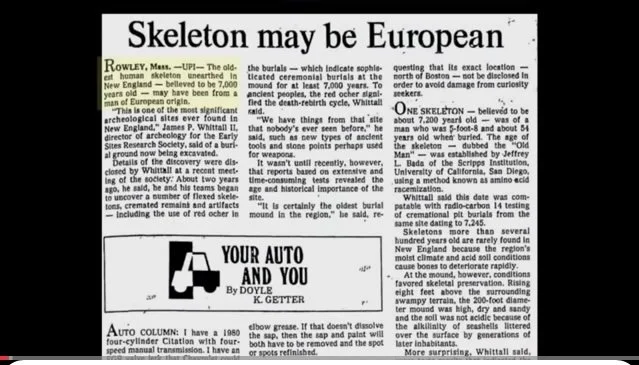
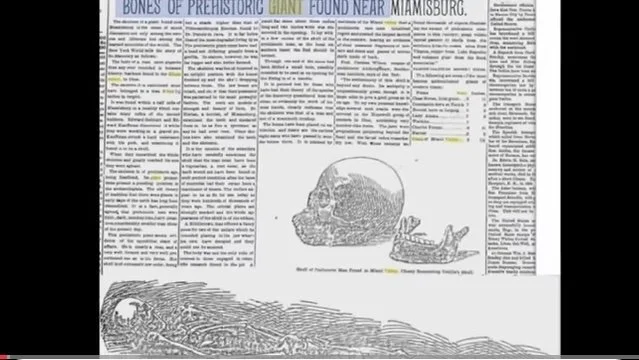
Stay tuned for Veils Parted of Multiple Deceptions - continued - Part Two of Two Parts.
